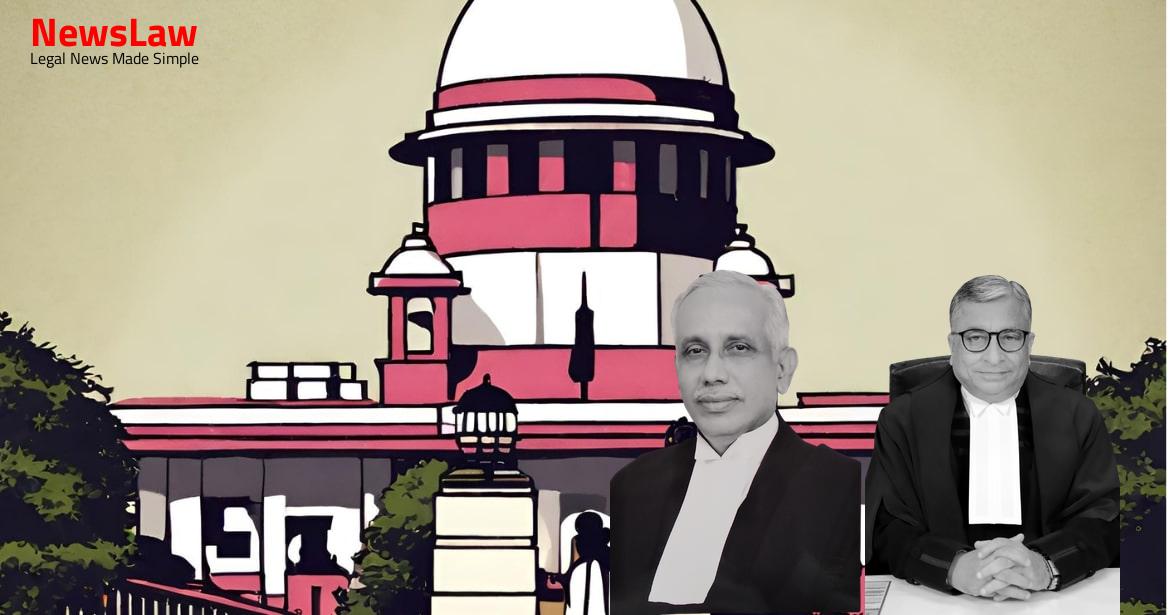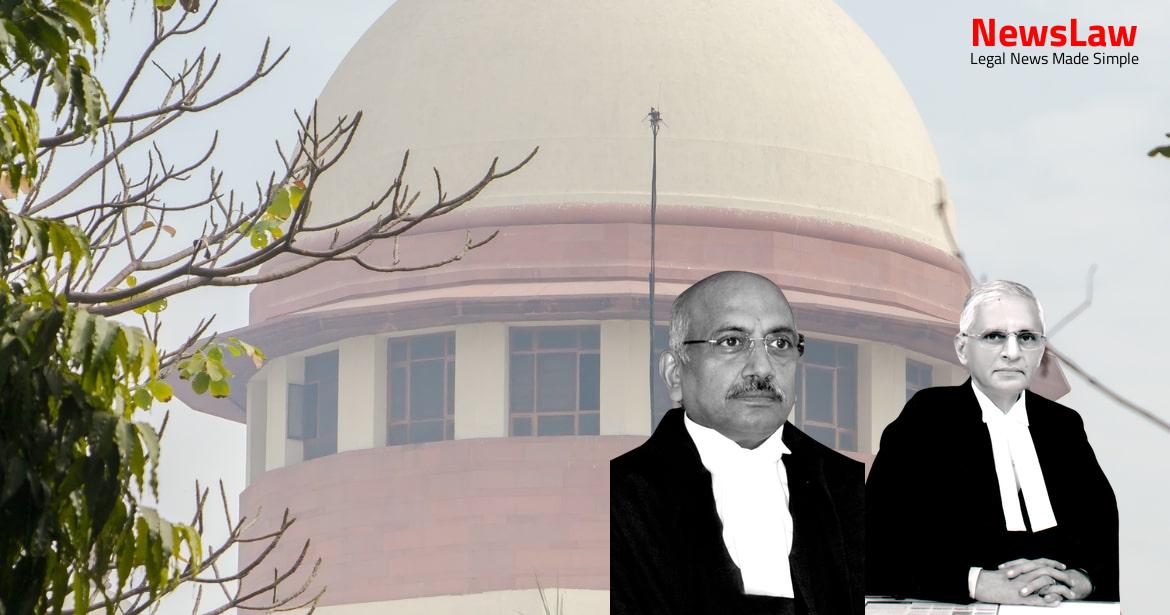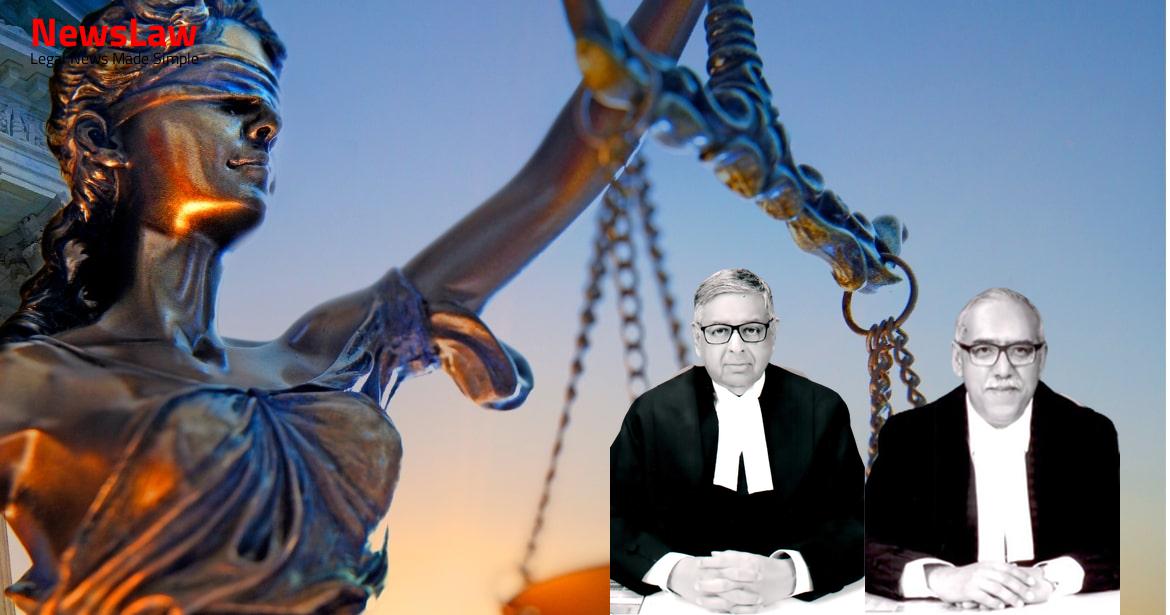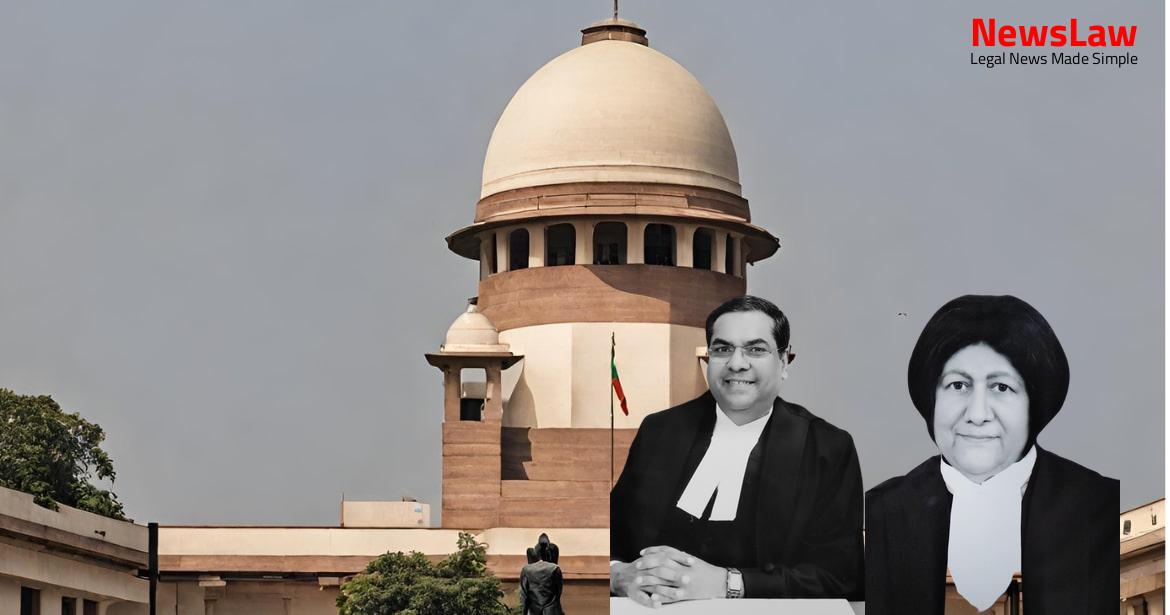Explore the detailed legal analysis of allegations concerning abetment of suicide, focusing on the interpretation of intent and instigation by the court. Delve into the complexities of proving mens rea and direct incitement in criminal cases. Stay informed about the nuances of the justice system’s examination of such sensitive matters.
Facts
- The appellant, a Physical Training Teacher in St. Xavier’s School, is facing prosecution under Section 306 of the Indian Penal Code (IPC) for the suicide of a student.
- The deceased student was found hanging in his room by his grandmother on 26.04.2018.
- The deceased had informed his mother about being harassed and insulted by the appellant, who was his PTI, leading to mental pressure and tension.
- The suicide note and items used for hanging were recovered from the deceased’s room.
- The appellant was responsible for imparting physical training to students and was a member of the Disciplinary Committee at the school.
- The mother of the deceased lodged an FIR under Section 306 IPC, alleging her son’s suicide was a result of harassment by the appellant.
- The deceased had faced harassment from the PTI on multiple occasions, leading to severe pressure.
- The High Court dismissed the petition under Section 482 of the Code of Criminal Procedure seeking to quash the First Information Report dated 02.05.2018.
- The FIR was registered as Case No 162 of 2018 at Police Station Sodala, Jaipur City (South).
- The appellant was aggrieved by the judgment and order dated 30.04.2019 passed by the High Court.
Also Read: Balancing Civil Disputes and Criminal Offenses
Arguments
- Dr. Manish Singhvi, representing the State of Rajasthan, argues that the FIR alleges a cognizable offense with a suicide note mentioning the appellant’s name.
- The suicide note consists of three pages with specific references to the appellant, indicating harassment and a plea for justice.
- The appellant is accused of harassing the deceased leading up to the suicide on 25.04.2018, with a proximate nexus between the harassment and the suicide.
- Shri Aditya Kumar Chaudhary, representing the complainant, asserts that the appellant’s actions of humiliation and harassment induced the deceased to commit suicide.
- The question of mens rea cannot be established at this stage as the investigation is ongoing.
- Shri Abhishek Gupta, representing the appellant, argues that the FIR does not establish the necessary ingredients for the offense of abetment under Section 306 IPC.
- In India, while suicide is not an offense, attempted suicide is considered an offense under Section 309 IPC.
Also Read: Assessment of Loss of Earning Capacity in Motor Accident Claim
Analysis
- The word suicide is derived from the modern Latin word ‘suicidium’, where ‘sui’ means oneself and ‘cidium’ means killing.
- Abetment is defined under Section 107 of IPC.
- Abetment of suicide is also an offence under Section 306 IPC.
- Section 306 of IPC makes abetment of suicide a criminal offence and prescribes punishment for the same.
- The High Court failed to evaluate prima facie whether the allegations in the FIR bring the case within Section 306 read with Section 34 of the IPC.
- Ingredients of Section 306 IPC require abetment and intention to aid or instigate suicide.
- Insulting the deceased with abusive language alone does not constitute abetment of suicide.
- Court to consider special features of a case to judge continuation of prosecution.
- Active or direct act leading to suicide must be intended to push the deceased into that position.
- Abetment involves a mental process of instigating or aiding a person.
- Without positive act of instigation or aid, conviction under Section 306 IPC cannot be sustained.
- Proof of direct or indirect incitement needed in cases of abetment of suicide.
- Instigation involves goading, provoking, inciting, or encouraging an act.
- Each case of alleged abetment of suicide must be examined based on the facts and surrounding factors.
- High Court’s failure to apply its mind to fundamental issues while quashing an FIR was noted.
- Court looks for cogent proof of incitement to suicide in abetment cases.
- Inherent power allows the Court to quash a proceeding if it’s an abuse of process or justice demands it.
- High Courts have the inherent power to prevent abuse of court proceedings.
- Guidelines and categories exist for the exercise of power to prevent abuse of court processes.
- Settled principles dictate the test to be applied when considering quashing a prosecution at the initial stage.
- Teachers have a moral and legal duty to hold regular meetings with parents under Section 24(e) of the Right of Children to Free and Compulsory Education Act, 2009.
- Reprimanding a student for indiscipline does not amount to instigation or aiding suicide.
- Corporal punishment is not recognized by law, but discipline measures are necessary.
- The court’s inherent powers must be exercised judiciously to prevent abuse and ensure justice.
- Allegations of abetment of suicide must involve clear mens rea and direct or indirect incitement to suicide.
- Examination of each case is essential to determine abetment of suicide based on specific circumstances and behaviors.
- The absence of specific allegations or proximate actions linking the accused to suicide can lead to quashing of the charges.
- The suicide note and surrounding circumstances play a crucial role in assessing the intention to abet suicide.
- The High Court’s decision on quashing proceedings should be based on factual analysis and legal principles.
- Quashing proceedings is justified if no offense is disclosed or if the matter amounts to an abuse of the legal process.
- The High Court was not justified in dismissing the application under section 482 CrPC for quashing the First Information Report.
- The pain and suffering of the complainant, who is the mother of the deceased boy, is acknowledged.
- Sympathies and the pain of the complainant do not translate into a legal remedy, especially a criminal prosecution.
Also Read: Enhancement of Compensation in Workmen’s Compensation Act Case
Decision
- The appeal is allowed.
- The impugned judgment of the High Court dated 30.04.2019 is set aside.
- The First Information Report registered as Case No 162 of 2018 at Police Station Sodala, Jaipur City (South), stands quashed.
Case Title: GEO VARGHESE Vs. THE STATE OF RAJASTHAN (2021 INSC 618)
Case Number: Crl.A. No.-001164-001164 / 2021



